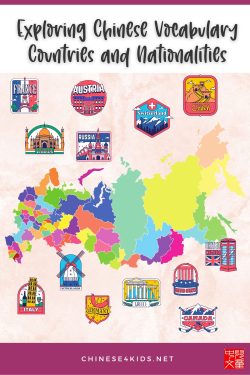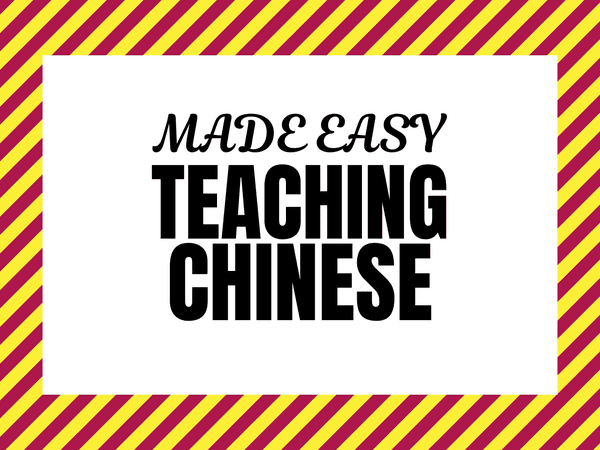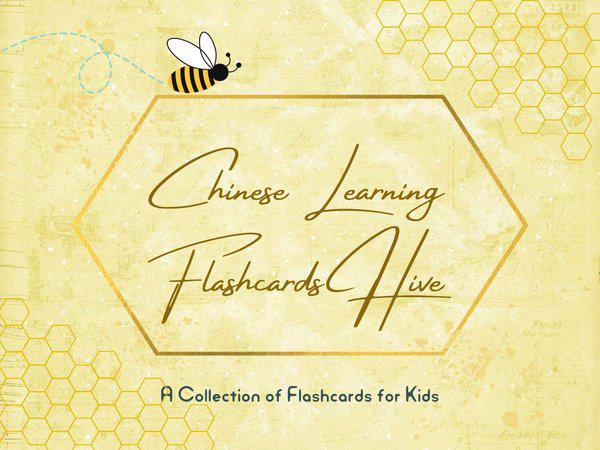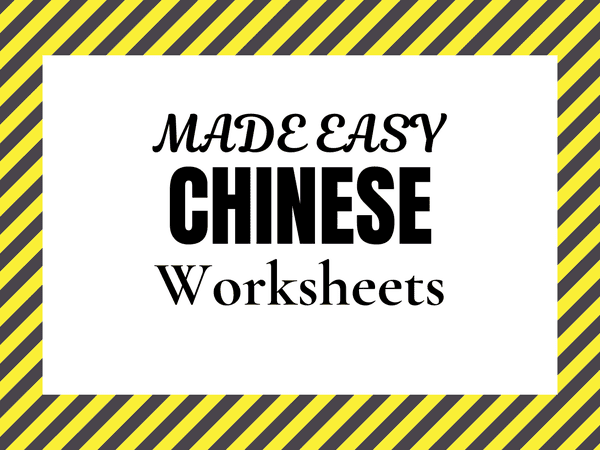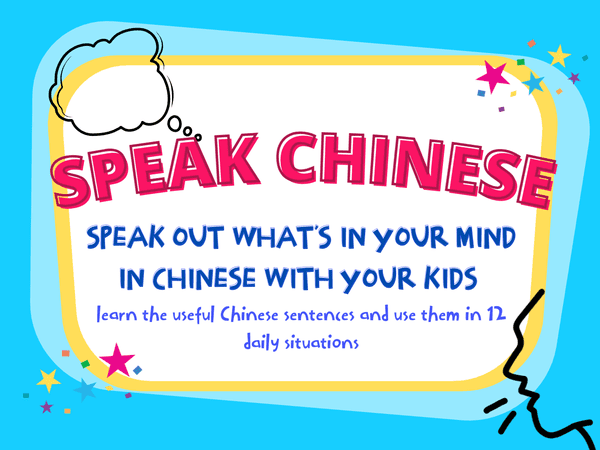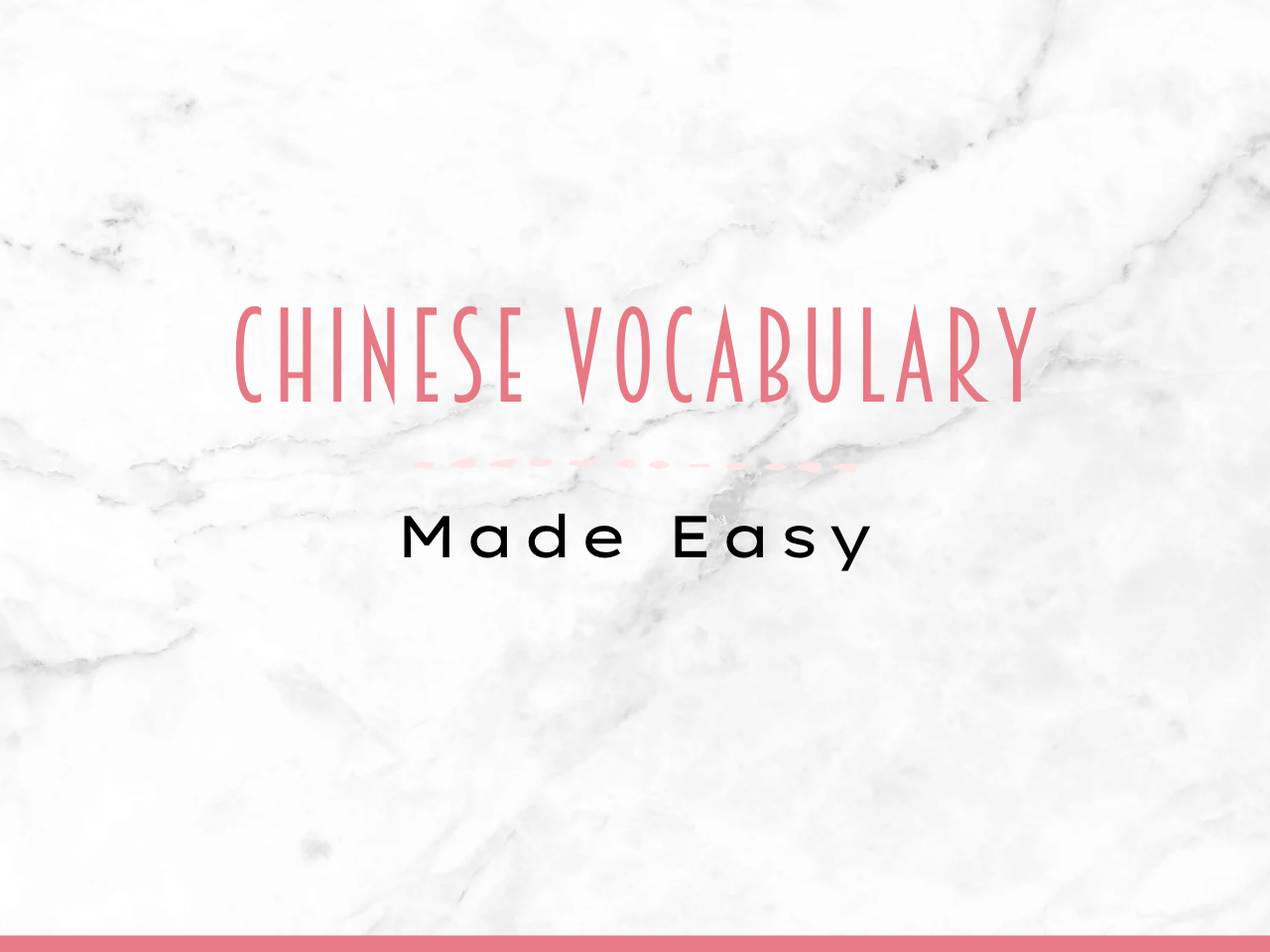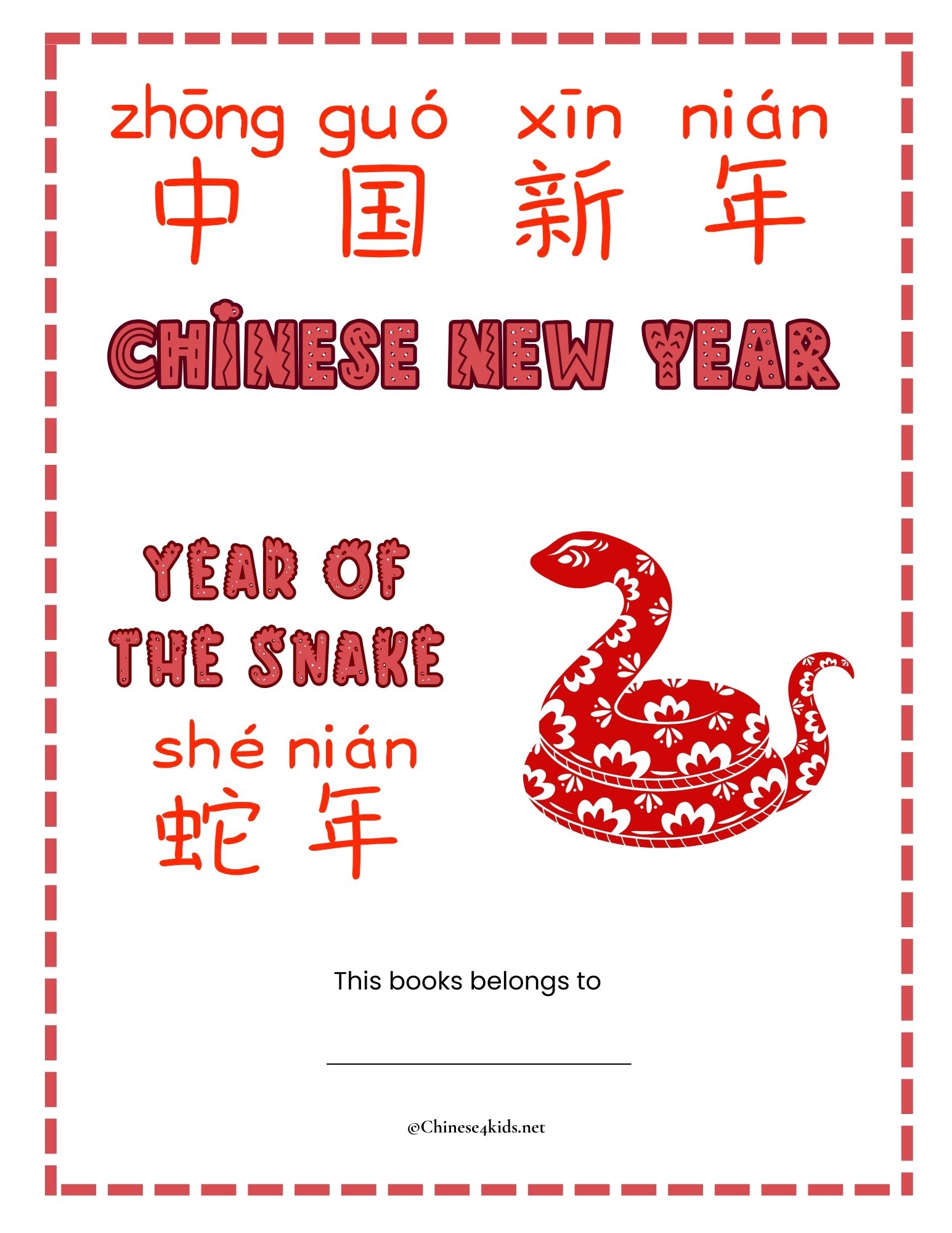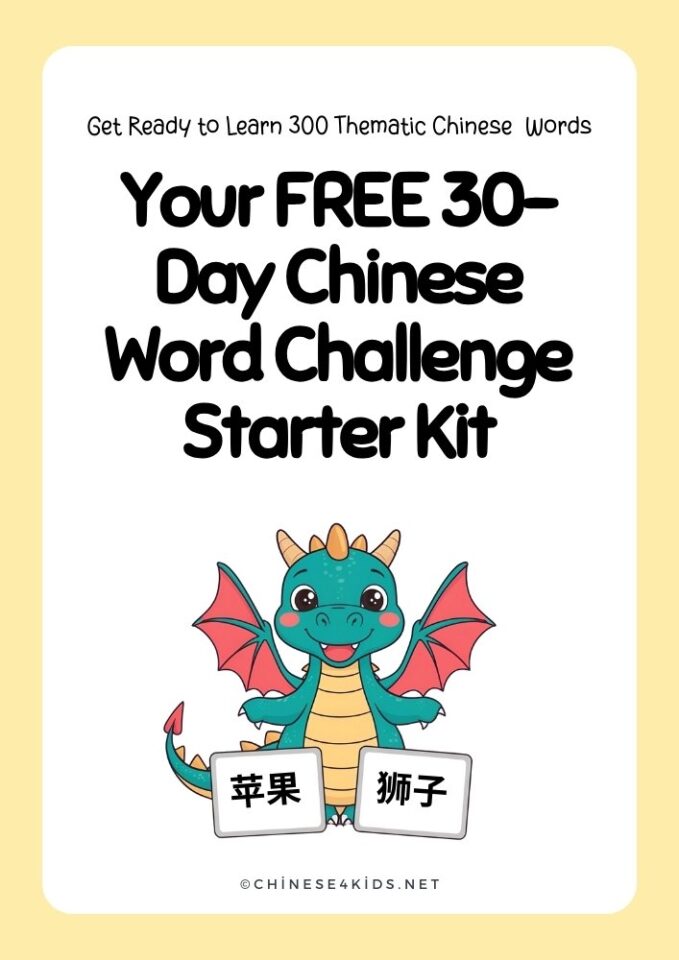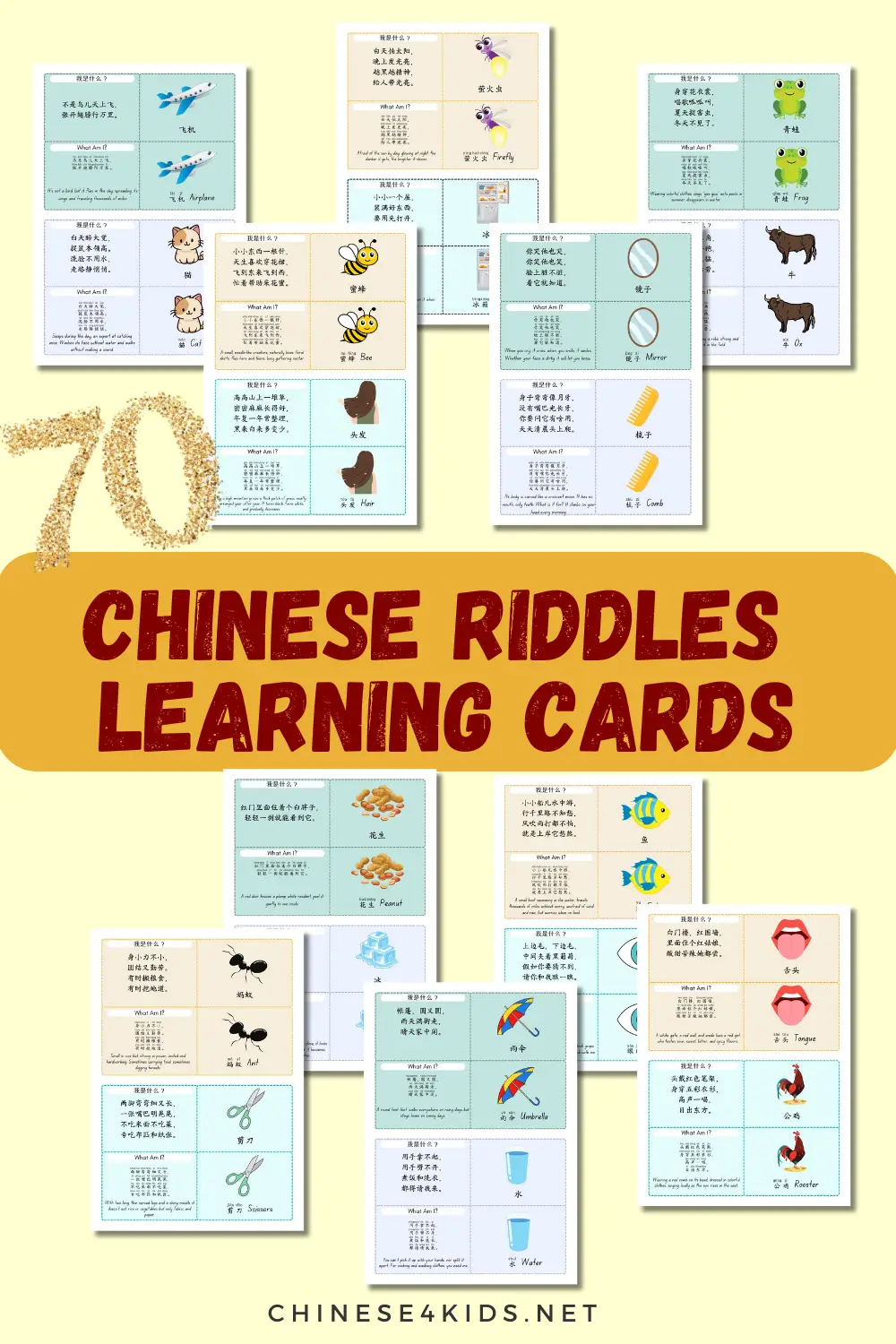
Home » Basic Chinese Vocabulary » Exploring Chinese Vocabulary: Countries and Nationalities
Exploring Chinese Vocabulary: Countries and Nationalities
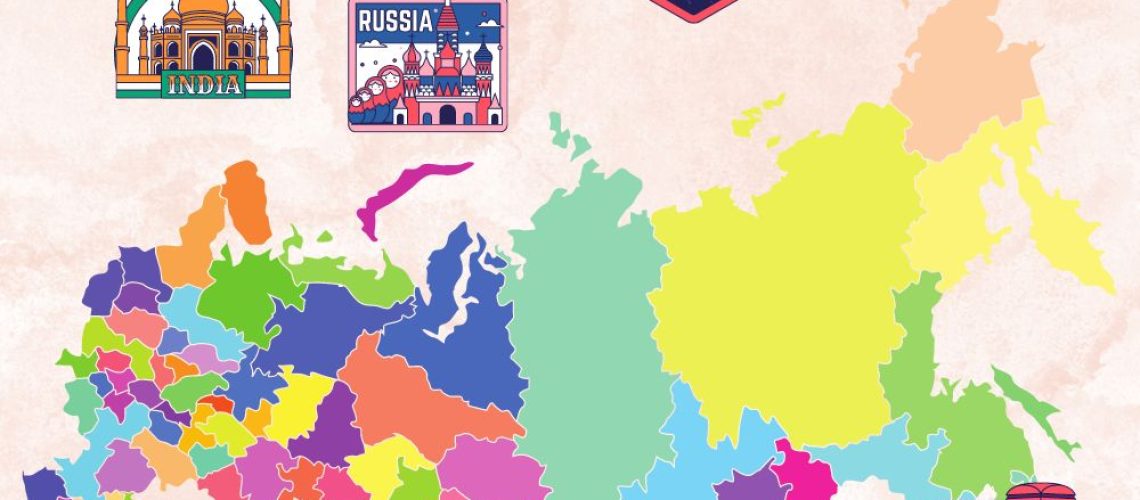
Country or nation is called “国” in Chinese. In Chinese, country names are typically composed of two or three characters. The characters used to represent a country’s name are usually phonetic approximations or derived from historical or cultural factors. Here are the main methods used to come up with names for other countries in Chinese:
How the Chinese Country Names Come From
Phonetic Transliteration:
This method involves selecting Chinese characters that approximate the sound of the country’s name in its original language. The chosen characters may not necessarily have a direct meaning related to the country.
For example:
- 德国 (Déguó) for Germany: The characters “德” (Dé) represent the phonetic approximation of the sound “Deutschland” in German. And “国” (guó) means “country” or “nation” in Chinese
- 美国 (Měiguó) for the United States. The character “美” (měi) means “beautiful” or “good-looking” in Chinese. It is chosen to represent the “美” sound in “America” or “American” and reflects a positive or favorable connotation. The combination of “美” (měi) and “国” (guó) forms the name “美国” (Měiguó) and translates to “Beautiful Country” or “Nation of Beauty.” This name reflects a perception of the United States as a prosperous and attractive country.
Literal Translation:
In some cases, the meaning of the country’s name is directly translated into Chinese characters. This method aims to convey the essence or characteristics of the country.
For example:
- 加拿大 (Jiānádà) for Canada: The characters “加” (Jiā) means “add” or “plus,” while “拿大” (ná dà) roughly means “take big,” reflecting Canada’s geographical size.
Historical or Cultural Associations:
Some country names in Chinese are based on historical or cultural connections. These associations can be derived from the country’s history, geography, or important cultural elements.
For example:
- 日本 (Rìběn) for Japan: The characters “日” (Rì) means “sun,” while “本” (běn) means “origin” or “source,” reflecting Japan’s historical association with the “Land of the Rising Sun.”
Now let’s have a look at some countries in Chinese:
Countries
中国 (Zhōngguó) – China
美国 (Měiguó) – United States
英国 (Yīngguó) – United Kingdom
法国 (Fǎguó) – France
德国 (Déguó) – Germany
日本 (Rìběn) – Japan
韩国 (Hánguó) – South Korea
加拿大 (Jiānádà) – Canada
印度 (Yìndù) – India
巴西 (Bāxī) – Brazil
荷兰 (Hélán) – Netherlands
意大利 (Yìdàlì) – Italy
比利时 (Bǐlìshí) – Belgium
波兰 (Bōlán) – Poland
西班牙 (Xībānyá) – Spain
葡萄牙 (Pútáoyá) – Portugal
希腊 (Xīlà) – Greece
瑞士 (Ruìshì) – Switzerland
乌克兰 (Wūkèlán) – Ukraine
澳大利亚 (Àodàlìyà) – Australia
土耳其 (Tǔ’ěrqí) – Turkey
俄罗斯 (Éluósī) – Russia
越南 (Yuènán) – Vietnam
泰国 (Tàiguó) – Thailand
以色列 (Yǐsèliè) – Israel
墨西哥 (Mòxīgē) – Mexico
智利 (Zhìlì) – Chile
阿根廷 (Āgēntíng) – Argentina
秘鲁 (Bìlǔ) – Peru
古巴 (Gǔbā) – Cuba
南非 (Nánfēi) – South Africa
埃及 (Āijí) – Egypt
尼日利亚 (Nírìlìyà) – Nigeria
肯尼亚 (Kěnníyà) – Kenya
Nationalities
Unlike English, nationalities are very easy in Chinese. Normally it follows country + 人 (rén, person). Here are some examples.
中国人 (Zhōngguó rén) – Chinese
美国人 (Měiguó rén) – American
英国人 (Yīngguó rén) – British
法国人 (Fǎguó rén) – French
德国人 (Déguó rén) – German
日本人 (Rìběn rén) – Japanese
韩国人 (Hánguó rén) – Korean
加拿大人 (Jiānádà rén) – Canadian
印度人 (Yìndù rén) – Indian
巴西人 (Bāxī rén) – Brazilian
荷兰人 (Hélán rén) – Dutch
意大利人 (Yìdàlì rén) – Italian
比利时人 (Bǐlìshí rén) – Belgian
波兰人 (Bōlán rén) – Polish
西班牙人 (Xībānyá rén) – Spanish
葡萄牙人 (Pútáoyá rén) – Portuguese
希腊人 (Xīlà rén) – Greek
瑞士人 (Ruìshì rén) – Swiss
乌克兰人 (Wūkèlán rén) – Ukrainian
澳大利亚人 (Àodàlìyà rén) – Australian
土耳其人 (Tǔ’ěrqí rén) – Turkish
俄罗斯人 (Éluósī rén) – Russian
越南人 (Yuènán rén) – Vietnamese
泰国人 (Tàiguó rén) – Thai
以色列人 (Yǐsèliè rén) – Israeli
墨西哥人 (Mòxīgē rén) – Mexican
智利人 (Zhìlì rén) – Chilean
阿根廷人 (Āgēntíng rén) – Argentine
秘鲁人 (Bìlǔ rén) – Peruvian
古巴人 (Gǔbā rén) – Cuban
南非人 (Nánfēi rén) – South African
埃及人 (Āijí rén) – Egyptian
尼日利亚人 (Nírìlìyà rén) – Nigerian
肯尼亚人 (Kěnníyà rén) – Kenyan
Common Ways Country Names Are Used in Chinese:
As Nouns:
Country names can be used as standalone nouns to refer to a specific country.
For example:
- 中国 (Zhōngguó) – China
- 美国 (Měiguó) – United States
- 荷兰 (Hélán) – Netherlands
Possessive With or Without “的” (de):
Country names can be modified with the possessive particle “的” (de) to indicate possession or relationship. Sometimes, “的“ is not necessary.
For example:
- 中国的文化 (Zhōngguó de wénhuà) – Chinese culture
- 美国的首都 (Měiguó de shǒudū) – Capital of the United States
- 意大利面 (Yìdàlì miàn) – spaghetti
- 希腊美食(Xīlà měishí)- Greek cuisine
With “国家” (guójiā):
To explicitly indicate “country” or “nation,” the word “国家” (guójiā) can be added after the country name.
For example:
- 英国 (Yīngguó) – England/Britain
- 英国国家队 (Yīngguó guójiā duì) – England national team
- 法国 (Fǎguó) – France
- 法国政府 (Fǎguó zhèngfǔ) – French government
Useful Phrases:
- 我是中国人。(Wǒ shì Zhōngguó rén.) – I am Chinese.
- 你是哪国人?(Nǐ shì nǎ guó rén?) – Which country are you from?
- 他是美国人。(Tā shì Měiguó rén.) – He is American.
- 我喜欢法国。(Wǒ xǐhuān Fǎguó.) – I like France.
- 你会说日语吗?(Nǐ huì shuō Rìyǔ ma?) – Can you speak Japanese?
- 她是韩国人。(Tā shì Hánguó rén.) – She is Korean.
- 你去过加拿大吗?(Nǐ qùguò Jiānádà ma?) – Have you been to Canada?
- 我的朋友是印度人。(Wǒ de péngyǒu shì Yìndù rén.) – My friend is Indian.
- 我在巴西学习。(Wǒ zài Bāxī xuéxí.) – I am studying in Brazil.
- 他们是德国人。(Tāmen shì Déguó rén.) – They are German.
Learning and familiarizing yourself with country names and nationalities in Chinese will enable you to engage in conversations, read texts, and understand references to different countries in the Chinese language.
Country Names Chinese Learning Flashcards
Flashcards are perfect for learning these country names in Chinese. You can find these flashcards in two places:
- The flashcards featured in the video are available inside our Chinese Learning Flashcards Hive
- The Montessori 3-part flashcards are available in our store. Have a look and get one set for your kids!
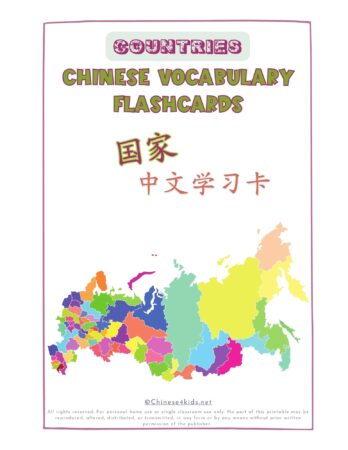
If you like this article, share it
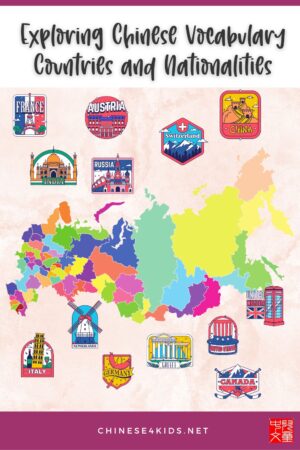
You May Also Be Interested:
- Chinese4kids Membership – a portal for busy Chinese teachers and parents
- Chinese learning flashcards Hive – a flashcards library that with regular additions of new quality Chinese learning flashcards
- Chinese learning worksheets collection – Also a part of Chinese4kids membership, this collection is for teachers and parents who want to have access to engaging worksheets and activity sheets created for kids learning Mandarin Chinese as an additional language
- Speak Chinese with Kids Course
- Chinese Vocabulary Made Easy Course
Recent Posts
Join Our Membership
Enroll to A Course
Buy An eBOOK
Our Posts
